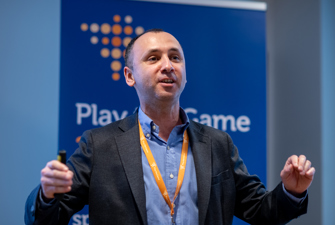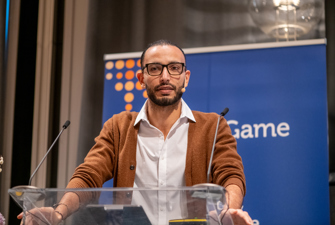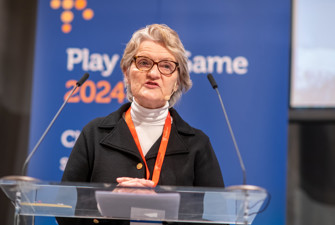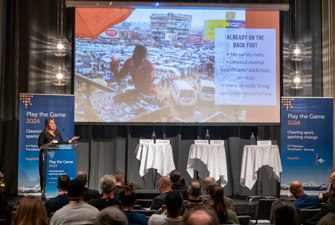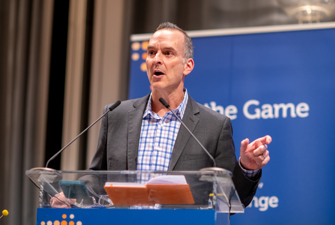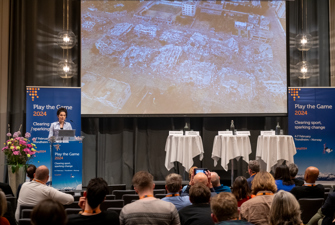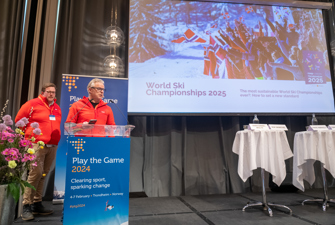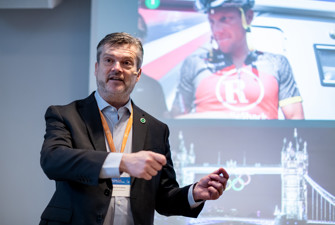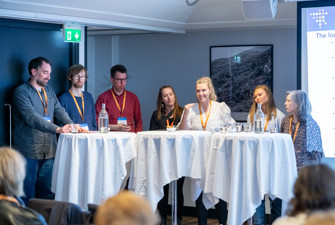Lessons from Qatar 2022: How activists should approach the 2034 World Cup in Saudi Arabia
Unlike Qatar, Saudi Arabia feels like it has leverage and does not need to pay attention to activists, so activists need to appeal to areas where Saudis are already interested in change, argued James M. Dorsey at Play the Game 2024.
The 2022 World Cup was the first to take place in the Arab world and saw Argentina lift the trophy following one of the most exhilarating finals in living memory.
However, the World Cup would not have materialized without the tens of thousands of migrant workers whose labour played a crucial role in bringing about the sporting spectacle. In the 13 months since the final, working conditions have worsened, wages are being withheld, and the challenges faced by migrant workers seem to have faded from the world's attention.
The success of Qatar 2022, combined with the absence of repercussions, is likely to empower other wealthy autocrats to utilise sports as a means of global influence.
Although there was pressure on Qatar to introduce certain limited and cosmetic labour reforms before the tournament, the Gulf state has not faced any incentives to enact those changes or fulfil its commitments to improving its human rights standing. This is especially troubling in the wake of Saudi Arabia’s status as the sole candidate to host the 2034 World Cup.
During Monday’s plenary session titled 'The Saudis are coming: How should world sport react to a new global sports order?' journalist and academic James M. Dorsey laid out a series of suggestions for how activists and the media should approach the upcoming event and avoid some of the pitfalls faced in the coverage of Qatar 2022.
“Qatar saw virtue in engaging with its critics, irrespective of how sincere Qatar’s engagement was,” Dorsey explained.
“In doing so, it broke ranks with other Gulf states. Saudi Arabia is unlikely to see an upside to engagement. Unlike Qatar, Saudi Arabia feels like it has the leverage and that it does not need to pay attention to activists and others. It feels that it ranks in the top tier of players on the international stage, where rights issues are not a determining factor,” he continued.
According to Dorsey, the trick to breaking through Saudi armour will likely be identifying entry points where Saudis may have an interest in change. He noted that labour rights may be the “foremost entry point” so long as it is framed more as suggested reforms rather than a human rights issue.
Dorsey also suggested that activists could utilise “creative packaging” to entice Saudi authorities to engage with their ideas while relegating the tactic of “naming and shaming” to a last resort.
“The fact of the matter is that all judicial arguments in favour of the value and respect for human rights are considerations that have no meaning for [Crown Prince] Mohammed bin Salman.“
Western activists need to restore their credibility after Gaza
Beyond his plea for activists to reevaluate their approach to Saudi Arabia following Qatar 2022, Dorsey also raised concerns about how the Western world has approached its coverage of the war in Gaza, where more than 27,000 Palestinians have been killed in Israeli strikes since Hamas launched its attack on October 7, 2023.
Dorsey noted that Western support for Ukraine following Russia’s invasion in 2022 was in stark contrast to the West’s handling of the humanitarian crisis in Gaza. His comments echo criticisms from the Global South, who contend that the West’s commitment to human rights is both selective and hypocritical.
If Western activists hope to voice major human rights issues ahead of the World Cup in Saudi Arabia, Dorsey insisted that they will first have to work hard to restore their credibility on the world stage.
“Whatever chance Western nations had of projecting themselves on the back of Ukraine has been undermined by the Gaza war.”
